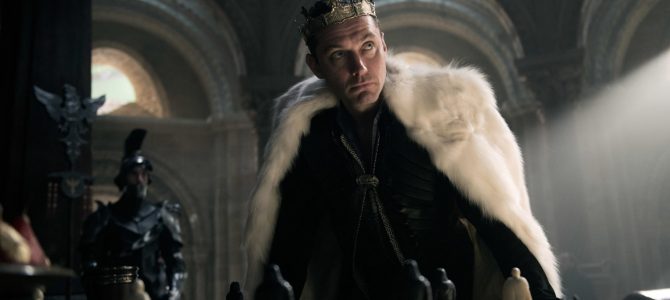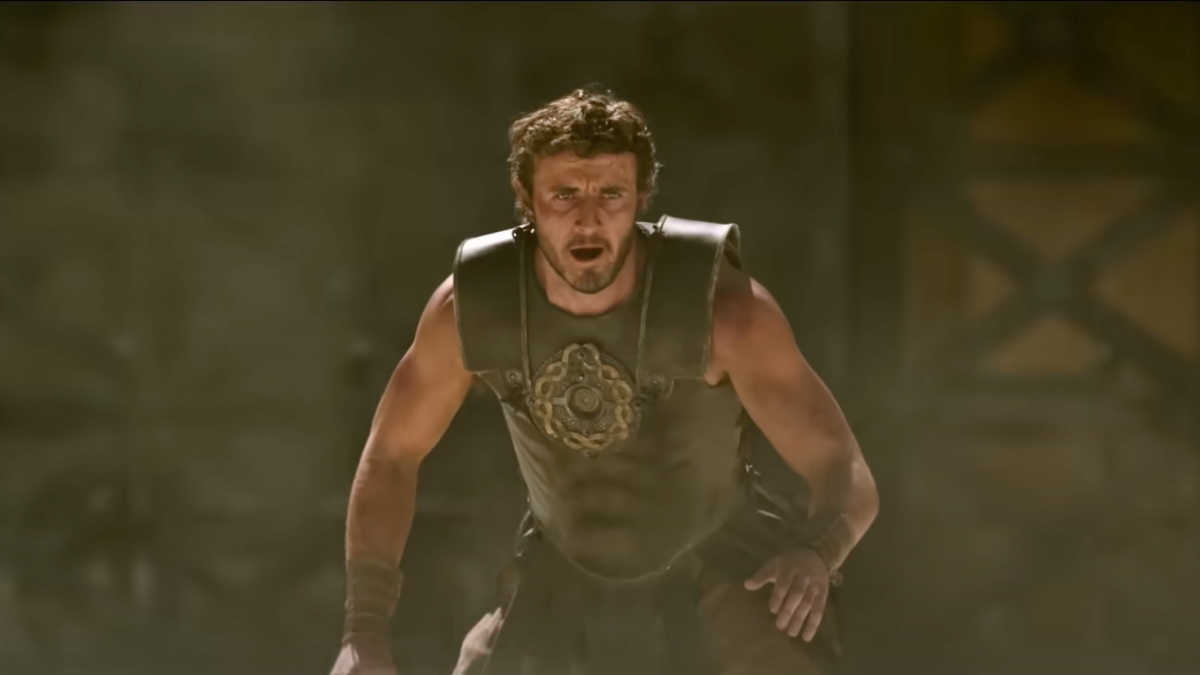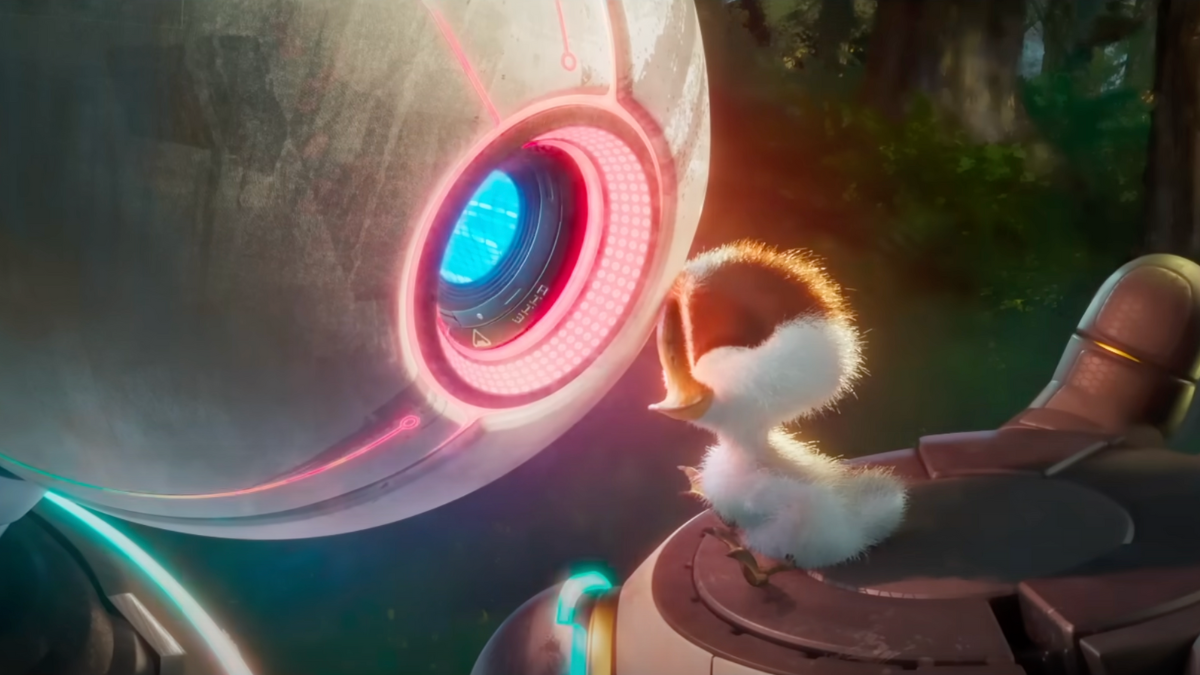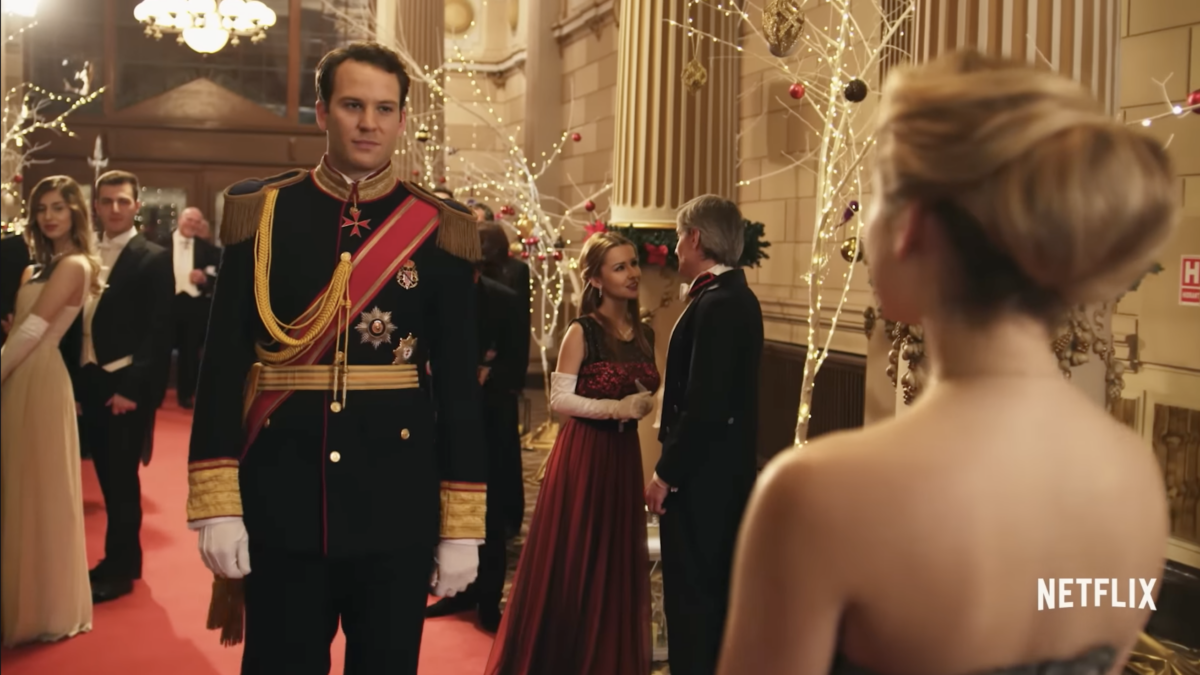
I’ve been a fan of the King Arthur legend almost as long as I’ve been alive, but I was underwhelmed by the frenetic trailers for Guy Ritchie’s big-budget reboot. Nevertheless, fully aware that Sir Thomas Malory might be rolling over in his grave, I turned out on opening night for this new interpretation.
“King Arthur: Legend of the Sword” is a very… unique take on the character. That’s not just a euphemism: on net, I’m pleasantly surprised at how entertained I was. By any objective metric, it’s pretty terrible. But it scores points for crossing over into the rarified realm of films “so bad they’re also kind of great.”
It’s hard to do justice to the sheer insanity of this experience, so just take my word for it: everything I’m about to describe actually happens in this movie.
‘Legend’ Is Full Of Berserk Dynamism
The film opens as King Uther Pendragon’s castle of Camelot is being attacked by the evil Mage King Mordred and his legion of supernaturally summoned, hundred-foot-tall war elephants. After repelling the attackers, Uther and his wife are murdered by Lord Vortigern (Jude Law), who’s been taking counsel from a trio of amphibious conjoined witches living in the Camelot dungeons.
Uther’s son Arthur (Charlie Hunnam) is spirited away to London, where he’s raised on the mean streets by a group of hookers with hearts of gold. Twenty-odd years later, a mysterious “sword in the stone” turns up, and everyone in the kingdom is required by law to try their hand at the task. Once he draws forth the blade, Arthur is almost killed by Vortigern’s men, until a gang of friendly outlaws and an animal-controlling mage girl intervene. Shortly thereafter, Arthur and his crew decide to lead an uprising against Vortigern to retake Camelot.
Suffice it to say that this is not another “gritty reboot”: instead, “Legend of the Sword” is ludicrously over-the-top, embracing its own berserk dynamism. There’s not much exposition or laborious world-building here, and that’s a good thing.
Somehow, this film is at its best when it abandons any attempt at explanation or straight-up narrative. If you took some of the wildest visuals—collapsing towers! giant snakes! giant bats with leech-like mouths! fiery explosions! the Lady of the Lake carrying a flaming sword underwater!—and switched out the sound effects for a synth-pop score, “Legend of the Sword” would actually be a pretty decent art film.
None of it makes any sort of sense, but you really have to admire the sheer brio of the whole thing.
A Film That’s Stupid, But Enjoyable
Obviously, there are a lot of moviemaking hiccups here. Director Ritchie borrows heavily—and largely unsuccessfully—from his “Snatch” and “Sherlock Holmes” bag of cinematic tricks. The distinctive “Guy Ritchie gimmick”—an explanatory voiceover layered onto a rapidly-edited visual sequence, as past events are recounted or a plan is described—is deployed four separate times, to stultifying effect. Ritchie also displays an obnoxious fixation on the “gritty street brawling” aspect of this story (which, in any story involving “King Arthur,” should be incidental to a larger plot), and the second act sags because of it. There are a lot of directors who could’ve effectively executed a King Arthur adaptation. Ritchie is not one of them.
And as stupidly enjoyable as “Legend of the Sword” can be, a lot of the Arthurian myth really was lost in translation. The best King Arthur stories are situated in a world that intersects with two distinct supernatural realities: paganism and Christianity. Within this space, Merlin’s Druidic wizardry and the sacred power of the Holy Grail can coexist—a nexus that reflects an essential tension between earthy, prehistoric magic and the holy light of the transcendent. Against that backdrop of otherworldly “kingdoms in conflict,” deeply human stories of love, loss, and war unfold.
For All Its Faults, ‘Legend’ Is Never Dull
“Legend of the Sword” is a serious dumbing-down—shall we say a “millennialization?”—of this ancient metaphysical order. Magic doesn’t “work” in any ordered sense here. Sorcerers wave their hands, and shiny stuff happens. The eponymous sword Arthur wields is a magical talisman that allows him to attack his enemies in slo-mo (imagine the “bullet time” sequences from “The Matrix,” but with blades). But it’s the sword, not Arthur, that’s really in control—a storytelling contrivance that deprives Arthur of any moral responsibility or need for kingly introspection.
The thematic desaturation doesn’t stop there. (Mild spoiler.) As Arthur prepares to confront Vortigern in a final battle, Vortigern suddenly transforms into a huge, flaming, armored demon and teleports them both into a mystical “battle arena.” It’s the single most “video gamey” moment I’ve ever seen in a Hollywood blockbuster—and while I must admit it’s an exciting sequence, it completely lacks internal logic. Is Vortigern channeling the evil spirits of Christian lore—Asmodeus, Belial, and so forth—the Celtic King of the Wild Hunt, the Viking demon Surtr, or something else altogether?
But maybe in the end, it doesn’t really matter. “Legend of the Sword” is quite comfortable embracing its own sheer wackiness. Ritchie commits to his crazy premise with lots of vim and vigor, and ends up producing something that’s quite watchable, if never really “good.” This is the sort of movie that will surely become a punchline in years to come—something endlessly mockable, but in an affectionate sort of way.
As far as I’m concerned, it’s better to aim high and go out with a bang than make something bland and pedestrian. And “Legend of the Sword,” for all its faults, is never dull.









